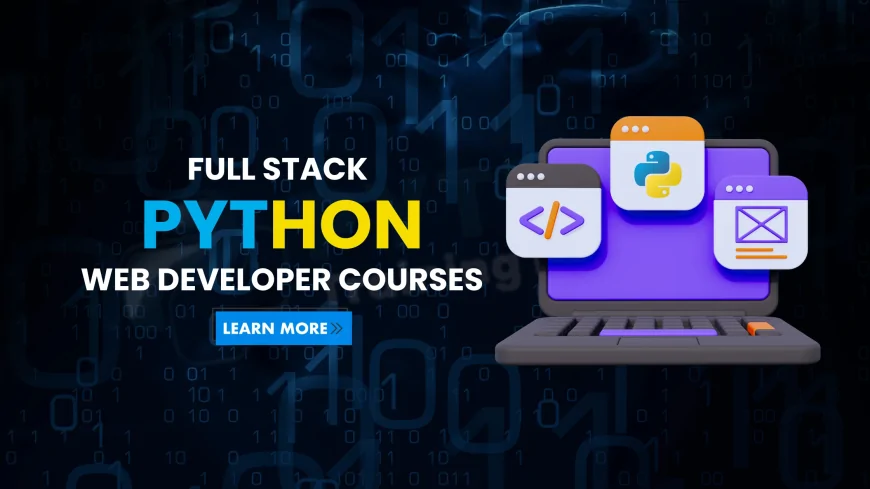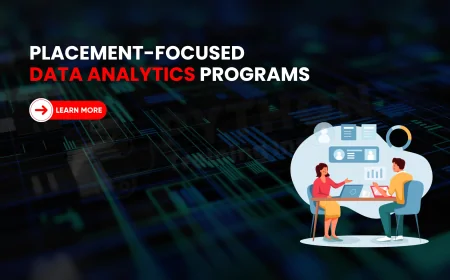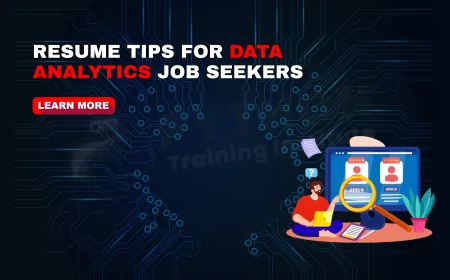Full Stack Python Web Developer Courses Pune | Best Full Stack Python Developer Training in Pune
Enroll in top full stack Python web developer courses in Pune. Learn Django, Flask, HTML, JS, APIs, and build job-ready web applications with certification.

Table of Contents
- Introduction
- Why Learn Full Stack Python Web Development?
- Key Skills Covered
- Frontend Stack in Full Stack Python
- Backend Technologies with Python
- Frameworks Taught: Django & Flask
- Database Integration and ORM
- RESTful API Development
- Live Projects for Portfolio
- Career Options After Course
- Top Institutes in Pune Offering Full Stack Python Courses
- WebAsha Technologies
- Course Fees and Duration
- Who Should Enroll?
- FAQs
- Conclusion
Introduction
Full stack web development using Python is one of the most powerful skills you can learn today. From building dynamic websites to deploying enterprise-grade applications, full stack developers are in high demand. This article explores the best Full Stack Python Web Developer Courses in Pune, what they teach, how they help you land a job, and which institutes are leading in this domain.
Why Learn Full Stack Python Web Development?
Python has become a go-to language for full stack development. Its readable syntax, massive ecosystem, and compatibility with frameworks like Django and Flask make it ideal for building robust web applications. Full stack developers can work on both frontend (client side) and backend (server side), making them extremely valuable to startups and MNCs alike.
Key Skills Covered
- HTML, CSS, Bootstrap for UI design
- JavaScript & React/Angular basics
- Core Python and OOP
- Django and Flask frameworks
- Database management with SQLite, MySQL, or PostgreSQL
- API development and integration
- Authentication and security
- Project deployment (Heroku, AWS, etc.)
Frontend Stack in Full Stack Python
-
Everything users click, scroll, or type into on a website is managed by the frontend layer.Students learn:
- HTML5 and CSS3: Are used to build the structure and design of modern web pages
- Bootstrap: Responsive design and layouts
- JavaScript: Interactivity and client-side logic
- React (optional): Frontend framework for dynamic components
Backend Technologies with Python
The server-side or backend involves handling business logic, database operations, and security. Courses include:
- Python scripting and backend fundamentals
- Flask for lightweight apps and APIs
- Django for building scalable, secure websites
- Middleware, views, templates, and routing
Frameworks Taught: Django & Flask
Both Django and Flask are powerful frameworks included in Pune's top full stack Python courses:
- Django: Ideal for large-scale, secure apps with built-in features like admin panel, authentication, etc.
- Flask: Lightweight, flexible, and perfect for custom APIs and microservices.
Database Integration and ORM
Database knowledge is crucial in full stack development. Students learn to work with:
- SQLite: Local testing and development
- MySQL/PostgreSQL: Production-grade databases
- ORM (Object Relational Mapping): Django ORM and SQLAlchemy allow developers to map Python classes to database tables with ease.
RESTful API Development
REST APIs allow apps to communicate. Courses cover:
- Creating endpoints using Flask/Django
- Token-based authentication (JWT)
- Integrating with frontend frameworks
Live Projects for Portfolio
- Online bookstore or e-commerce platform
- Student management system
- Blog application with login/logout
- Portfolio or resume website
Career Options After Course
- Full Stack Web Developer
- Python Developer (Web & Backend)
- Frontend Developer (with HTML/CSS/JS)
- Django/Flask Engineer
- Freelancer or Startup Builder
Top Institutes in Pune Offering Full Stack Python Courses
WebAsha Technologies :-
WebAsha Technologies is one of the most reputed names in Pune for full stack Python training. Their course is designed to make students job-ready with comprehensive modules covering both frontend and backend technologies. The curriculum includes:
- HTML, CSS, JavaScript, and Bootstrap for frontend design
- Core Python, object-oriented programming (OOP)
- Backend development with Django and Flask frameworks
- Database integration using MySQL, SQLite
- RESTful API development and integration
- Project deployment using Heroku or AWS
Students receive hands-on training with real-world projects like e-commerce apps, blogs, and REST APIs. The course also includes resume-building sessions, interview preparation, and dedicated placement support. WebAsha Technologies offers flexible batches — weekday, weekend, and online learning options — to suit both freshers and working professionals.
Why choose WebAsha?
- Certified trainers with 10+ years of industry experience
- Live project work and Git/GitHub version control
- 100% placement assistance with resume and mock interview support
- Globally recognized certification upon course completion
Course Fees and Duration
- Duration: 2 to 3 months
- Fees: ₹20,000 to ₹45,000
- Batch Options: Weekend, Evening, Fast-track
Who Should Enroll?
- Final-year college students & freshers
- Frontend developers aiming to become full stack
- Career switchers from non-IT backgrounds
- Working professionals upgrading to web development
- Freelancers & startup founders
Frequently Asked Questions (FAQs)
1. What is a full stack Python developer?
A developer skilled in both frontend and backend technologies using Python frameworks like Django/Flask along with HTML, CSS, and JS.
2. Do I need prior coding experience?
No. Most courses start from the basics and guide you step-by-step.
3. Which is better: Django or Flask?
Django is great for large apps with built-in tools; Flask is better for lightweight, flexible projects.
4. How long does it take to become a full stack developer?
With a structured course, you can become job-ready in 2 to 3 months.
5. Are these courses beginner-friendly?
Yes, most are designed for complete beginners and include mentorship.
6. Will I get placement support?
Yes. Institutes like WebAsha offer placement assistance and resume building.
7. Is this course available online?
Yes. Many institutes provide online, hybrid, and offline options.
8. Will I build real-world projects?
Yes. Courses include multiple hands-on projects to strengthen your portfolio.
9. What is the average salary after completing this course?
Freshers earn ₹3–6 LPA, while experienced developers may earn ₹7–12 LPA.
10. What tools will I learn?
VS Code, Git, GitHub, Postman, Django Admin, SQLite, MySQL, Heroku/AWS.
11. Do I get a certificate after completion?
Yes. You will receive a course completion certificate from the institute.
12. Can I do this part-time?
Yes. Evening and weekend batches are available for working professionals.
13. Are EMI or installment options available?
Yes. Many institutes offer EMI plans and installment payment options.
14. Will I learn deployment too?
Yes. Deployment on Heroku or AWS is part of the syllabus.
15. Is React included in the course?
Some full stack courses include React basics or offer it as an add-on module.
16. Can I work as a freelancer after this?
Yes. You’ll have enough skills to build and deploy websites or apps for clients.
17. What are the job roles available?
Python Developer, Full Stack Developer, Web Developer, Backend Engineer, API Developer.
18. Is this suitable for non-CS graduates?
Yes. It’s beginner-friendly and suitable for graduates of any background.
19. What is ORM in Django?
Object Relational Mapping lets you interact with databases using Python classes instead of raw SQL.
20. Can I get help after course completion?
Yes. Reputed institutes provide post-course support, mentorship, and career counseling.
Conclusion
If you're aiming to build a high-paying career in web development, enrolling in a Full Stack Python Web Developer Course in Pune is a smart move. With strong Python foundations, frontend/backend integration, and project-driven learning, these courses provide everything you need to succeed. Choose a trusted institute, commit to consistent practice, and launch your tech career with confidence.
What's Your Reaction?
 Like
0
Like
0
 Dislike
0
Dislike
0
 Love
0
Love
0
 Funny
0
Funny
0
 Angry
0
Angry
0
 Sad
0
Sad
0
 Wow
0
Wow
0














